Health Library
Our Health Library information does not replace the advice of a doctor. Please be advised that this information is made available to assist our patients to learn more about their health. Our providers may not see and/or treat all topics found herein.
Colon surgery
Colon problems
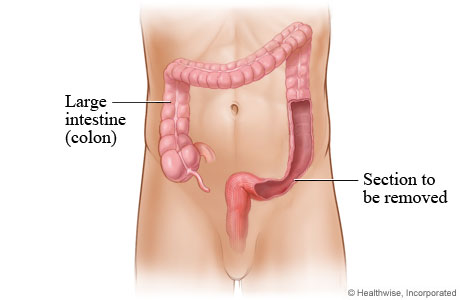
A partial colectomy is surgery to remove part of the large intestine (colon). This surgery is often needed for health problems such as diverticulitis, colon cancer, Crohn's disease, or colitis. These diseases can lead to problems with the colon, such as blockage, inflammation, lack of blood supply, or perforation.
A partial colectomy is also called a bowel resection.
Colon section removed
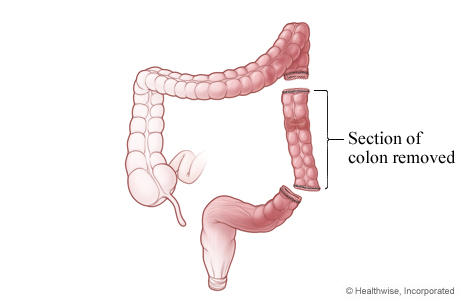
First, the surgeon removes part of your colon.
Colon ends reattached
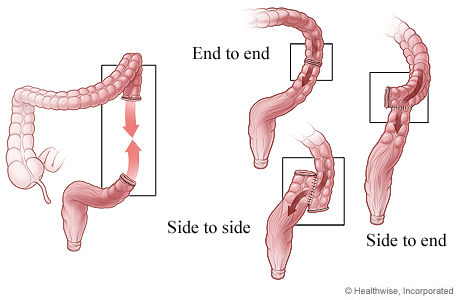
In many cases, the surgeon can reattach the ends of the colon in the same surgery. The ends can be reattached end to end, side to side, or side to end.
But sometimes the ends can't be reattached until the colon has had some time to heal. In this case, the surgeon will need to create a stoma.
Stoma created
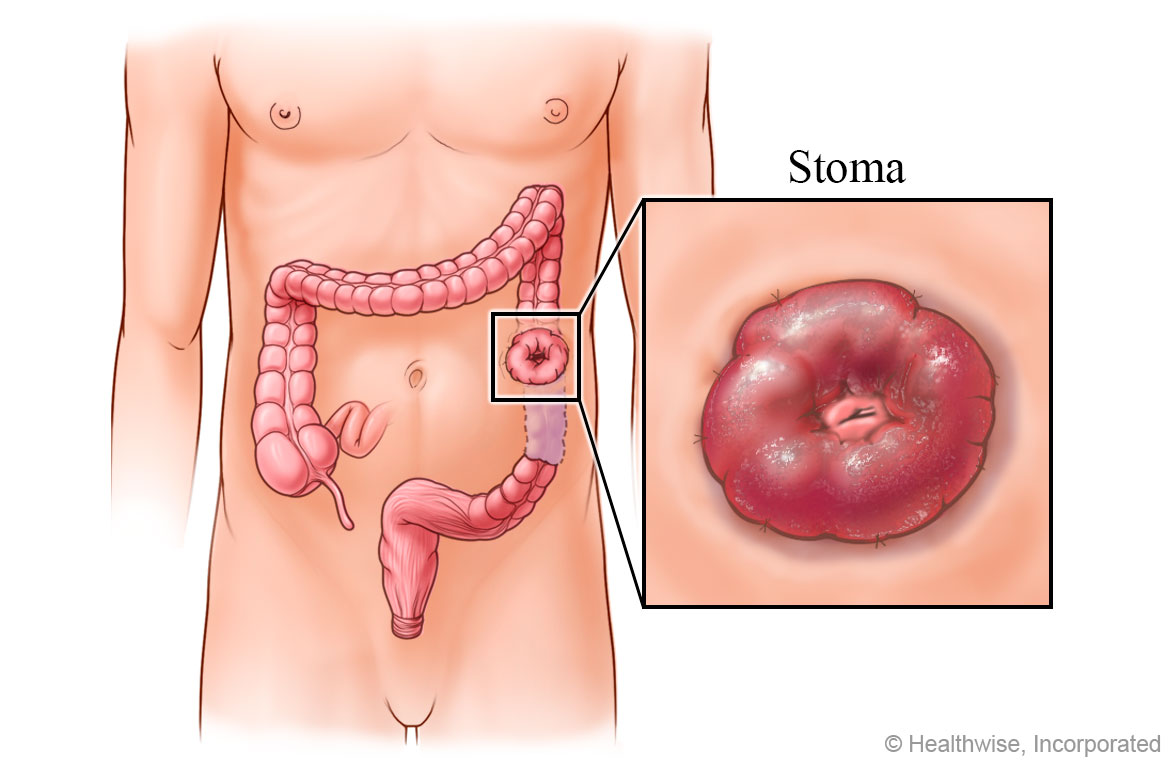
To create a stoma, the surgeon makes an opening in your belly and connects part of the intestine to that opening in the skin. This opening is the stoma.
After you have this surgery, which is called a colostomy, waste will leave your body through the stoma instead of through the anus.
This completes the first surgery. You then have to give your colon time to heal.
Colostomy bag in place
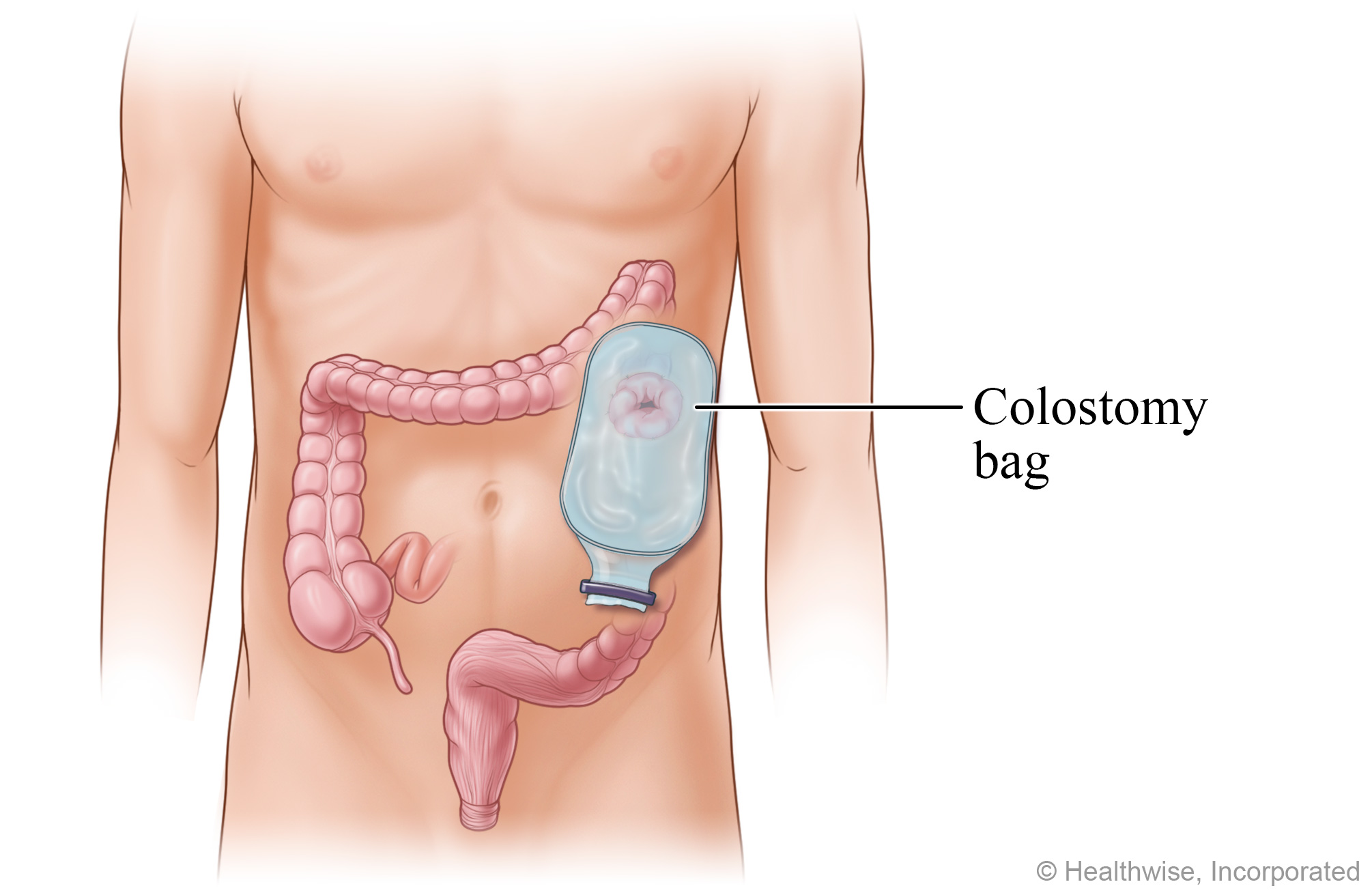
There is no muscle around the stoma, so you won't be able to control when waste or gas passes out of your body. To collect the waste, an odor-proof plastic colostomy bag (also called an ostomy pouch) is placed on the stoma. The bag is held to your skin with an adhesive or tape. Body waste passes from the colon through the stoma into the colostomy bag.
After your colon has healed, you may be able to have another surgery to close the stoma and reattach the ends of your colon. After the ends of your colon are reattached, you will no longer need a colostomy bag. Waste will again leave your body through the anus.
Current as of: October 19, 2024
Author: Ignite Healthwise, LLC Staff
Clinical Review Board
All Ignite Healthwise, LLC education is reviewed by a team that includes physicians, nurses, advanced practitioners, registered dieticians, and other healthcare professionals.
This information does not replace the advice of a doctor. Ignite Healthwise, LLC disclaims any warranty or liability for your use of this information. Your use of this information means that you agree to the Terms of Use and Privacy Policy. Learn how we develop our content.
To learn more about Ignite Healthwise, LLC, visit webmdignite.com.
© 2024-2025 Ignite Healthwise, LLC.


